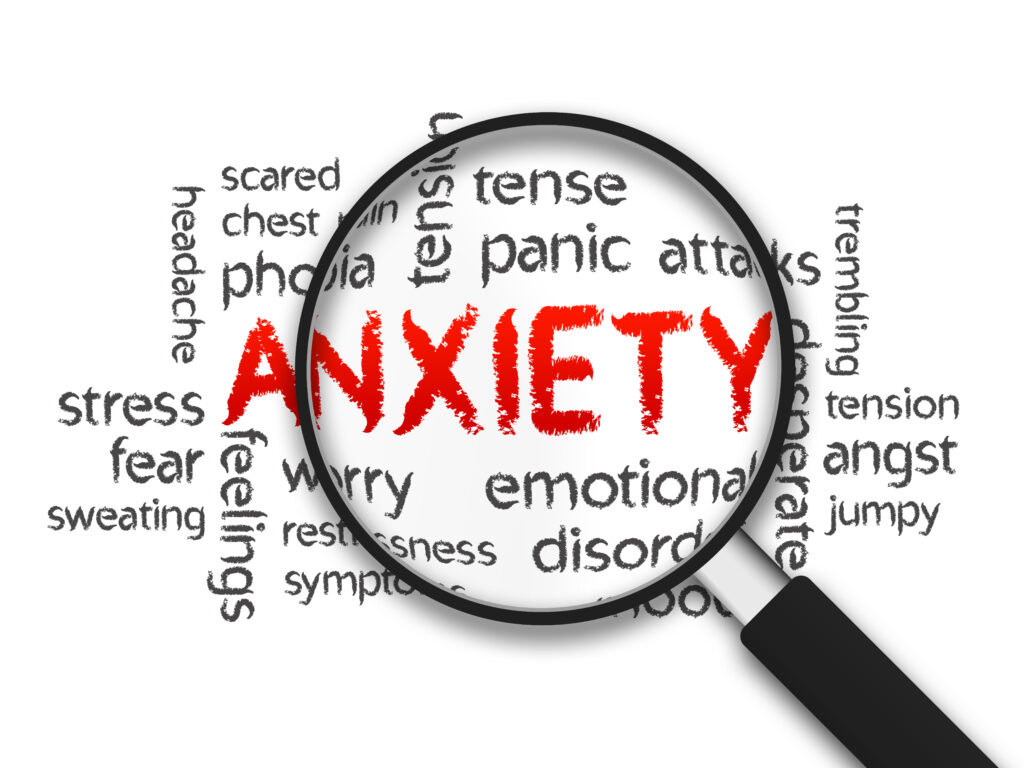What is Trauma? Everything You Need To Know About Trauma and PTSD

Trauma therapy is a vital part of recovery for those who have experienced these types of events in their lives. Many people find they cannot overcome these events’ stress without guidance from professional trauma therapy. Based in Phuket, Thailand, Yatra Centre is a safe, peaceful space designed using a trauma-informed approach. Surrounded by natural beauty and ocean views, our space provides a calm and focused environment, ideal for clients to work on understanding and healing trauma. Let’s get into understanding more about what trauma is…
Effects Of Trauma
In recent years the word Trauma has been used much more commonly in daily conversations. That said, understanding is often lacking, and for those dealing with Trauma, it holds a much deeper meaning in their lives and is often misunderstood by many. It is a deeply distressing or disturbing experience that impacts an individual’s mental, physical, and emotional well-being. Trauma is not just an event that occurred in the past; it’s a shadow that follows, influencing behaviours, relationships, and overall health.
Trauma can stem from various situations, such as a severe accident, a violent attack, an abusive relationship or a natural disaster. This guide aims to delve into the depths of trauma, shedding light on its causes, effects, and how to cope with it. Understanding trauma is crucial for those affected by it, their loved ones, and society at large, as it helps foster empathy, support, and effective communication.
Defining Trauma
Trauma is not just an event that occurred sometime in the past; it is also the imprint left by that experience on the mind, brain, and body. This imprint has ongoing consequences; unless steps are taken to mitigate the impact of trauma, the effects can last a lifetime. Trauma can be a response to a distressing event or a series of events that cause lasting emotional distress. It’s important to note that trauma is subjective – what might be traumatic for one person might not be for another. It’s not the objective facts that determine whether an event is traumatic, but your subjective emotional experience. The more frightened and helpless you feel, you will likely be traumatised.
Types of Trauma
Trauma can be categorised into different types, each with unique characteristics and impacts on an individual’s health and relationships.
- Physical Trauma: This type of trauma is often the result of a severe accident or injury. It includes experiences like car accidents, physical abuse, or natural disasters. Physical trauma can lead to lasting physical injuries, and it can also have psychological effects.
- Emotional Trauma: Emotional trauma can stem from a distressing event like losing a loved one, a divorce, or childhood neglect. It might not involve physical harm but can be just as damaging. Emotional trauma can lead to depression, anxiety, and other mental health disorders.
- Psychological Trauma: This type of trauma is often the result of highly stressful events that shatter your sense of security, making you feel helpless and vulnerable in a dangerous world. Psychological trauma can leave you struggling with upsetting emotions, memories, and anxiety that won’t go away.
Understanding these different types of trauma can help us better empathise with those who have experienced trauma and can guide us in providing the right support and care.
The Impact of Trauma on Relationships
Trauma can significantly impact relationships, creating a ripple effect beyond the individual experiencing the trauma. This includes relationships between individuals, within communities, and even the delivery systems that support individuals’ health and social needs. Trauma can lead to heightened emotions, such as anger or aggression, or a tendency towards shame, numbing, and isolation. These emotional responses can strain personal relationships, causing individuals to withdraw from their loved ones or react in ways that push others away.
Within healthcare, trauma can negatively impact the bond between a patient and their provider, thus, a patient’s engagement in care. Patients who have experienced trauma may have difficulty trusting healthcare providers, leading to a lack of communication, missed appointments, and non-adherence to treatment plans. This can result in poorer health outcomes and a lower quality of care.
Moreover, trauma can also impact community relationships. Individuals who have experienced trauma may feel disconnected from their community, leading to isolation and loneliness. On a larger scale, communities that have experienced collective trauma, such as natural disasters or acts of violence, may struggle with community cohesion and resilience.
The Science Behind Trauma – Post-Traumatic Stress (PTSD)
Understanding the science behind trauma can help us better understand its effects on the human body and mind. Traumatic experiences can change brain structure and function, affecting an individual’s behaviour and health.
When a person experiences a traumatic event, their body’s stress response system is activated. This involves a series of physiological changes, including increased heart rate, blood pressure, and levels of stress hormones like adrenaline and cortisol. These changes are designed to help the body respond to immediate danger. However, when a person experiences chronic or repeated trauma, this stress response system can become dysregulated, leading to long-term health problems.
Research has shown that trauma can lead to changes in the brain, particularly in areas involved in memory, learning, and emotion regulation. For example, studies have found that individuals with post-traumatic stress disorder (PTSD) often have smaller hippocampi, a part of the brain involved in memory processing. Trauma can also affect the prefrontal cortex, the brain area responsible for decision-making and impulse control, leading to difficulties in these areas.
Trauma and Mental Health (Unprocessed Trauma)
Trauma can profoundly impact mental health, often leading to post-traumatic stress disorder (PTSD), depression, and anxiety disorders. PTSD, for instance, is a condition that can develop after a person has experienced a terrifying event or ordeal in which grave physical harm occurred or was threatened. Symptoms can include flashbacks, nightmares, severe anxiety, and uncontrollable thoughts about the event. Depression and anxiety, on the other hand, can manifest as persistent sad, anxious or “empty” moods, feelings of hopelessness, irritability, feelings of guilt, worthlessness, or helplessness, and loss of interest or pleasure in hobbies and activities. It’s important to note that these conditions are not a sign of weakness but are common responses to traumatic experiences. Treatment often involves a combination of psychotherapy and medication, and with the right help, individuals can recover from these conditions and lead healthy, fulfilling lives.
Childhood Trauma (Traumatic experience & Distress)
Children and adolescents are not immune to trauma, and their impact can be particularly profound given their stage of development. Trauma in young people can result from abuse, neglect, witnessing violence, or losing a loved one. It can lead to changes in behaviour, such as aggression, withdrawal, or sudden changes in academic performance. Children may also experience physical symptoms such as headaches or stomachaches and may have difficulty sleeping. Adolescents may engage in risky behaviours, such as substance abuse or self-harm. Parents, caregivers, and educators can support children and adolescents who have experienced trauma by providing a safe and supportive environment, helping them understand and express their feelings about the traumatic event, and seeking professional help if necessary.
The Role of Resilience in Overcoming Trauma
Resilience is crucial in how individuals cope with and recover from trauma. It’s the ability to bounce back from adversity and adapt to challenging circumstances. While some people may naturally be more resilient, it’s also a skill that can be developed. Building resilience often involves fostering solid and positive relationships with supportive individuals like family members, friends, or mentors. These relationships can provide emotional support, practical help, and a sense of belonging. Self-care practices, such as maintaining a healthy lifestyle, practising mindfulness, and engaging in activities you enjoy, can also boost resilience. Finally, seeking professional help, such as therapy or counselling, can provide individuals with strategies to manage stress and cope with the effects of trauma. It’s important to remember that everyone’s journey to resilience is unique, and it’s okay to ask for help along the way.
Coping Strategies and Solutions (self-care)
Dealing with trauma can be challenging, but various coping strategies and solutions are available. These include:
- Seeking Professional Help: Therapy or counselling can incredibly benefit individuals dealing with trauma. Cognitive-behavioural therapy (CBT) and eye movement desensitisation and reprocessing (EMDR) can effectively treat trauma.
- Joining Support Groups: Support groups can provide a safe space for individuals to share their experiences and feelings with others who have had similar experiences. This can help reduce feelings of isolation and provide emotional support.
- Practising Mindfulness and Relaxation Techniques: Techniques such as meditation, deep breathing, and yoga can help reduce symptoms of stress and anxiety associated with trauma.
- Maintaining a Healthy Lifestyle: Regular exercise, a balanced diet, and adequate sleep can help improve physical health and resilience.
It’s important to remember that everyone’s healing process is unique, and what works for one person might not work for another. Therefore, exploring different coping strategies and finding what works best for you is crucial.
Navigating the complex world of trauma and PTSD can be overwhelming. Here, we address some of the most frequently asked questions about these topics, providing clarity and insight to guide your understanding.
Frequently Asked Questions (FAQs) About Trauma and PTSD
1. What constitutes a traumatic event?
A traumatic event is a deeply distressing or disturbing experience that significantly impacts an individual’s mental, physical, and emotional well-being. This can include experiences such as severe accidents, violent attacks, natural disasters, or personal loss. It’s important to note that what may traumatise one person may not have the same effect on another, as trauma is subjective and varies from person to person.
2. How does trauma affect a person?
Trauma may lead to various physical, emotional, and psychological effects. These can include symptoms of post-traumatic stress disorder (PTSD), such as flashbacks, nightmares, and severe anxiety. Trauma may also lead to depression, substance abuse, and difficulties in relationships and daily functioning.
3. What is PTSD?
Post-traumatic stress disorder (PTSD) is a mental health condition that can develop after a person has experienced a traumatic event. Symptoms can include intrusive memories of the event, avoidance of trauma reminders, adverse changes in thoughts and mood, and changes in physical and emotional reactions.
4. Can a single traumatic experience lead to PTSD?
Yes, a single traumatic experience can potentially lead to PTSD. However, not everyone who experiences trauma will develop PTSD. Factors such as the individual’s history, support system, and coping mechanisms can influence the likelihood of developing PTSD.
5. How can I support someone who has experienced trauma?
Supporting someone who has experienced trauma involves providing a safe, non-judgmental space for them to express their feelings and experiences. It’s important to listen empathetically, offer reassurance, and avoid pushing them to share more than they’re comfortable with. Encouraging them to seek professional help can also be beneficial.
6. What is distress in the context of trauma?
In trauma, distress is the intense emotional pain, anxiety, or suffering a person experiences following a traumatic event. This distress can manifest in various ways, including physical symptoms, changes in mood or behaviour, and difficulties in daily functioning.
7. What does trauma-informed mean?
Trauma-informed refers to an approach or practice that acknowledges the impact of trauma on an individual’s life and integrates this understanding into all aspects of service delivery. This approach prioritises the individual’s safety, choice, and control and avoids re-traumatisation.
8. What is trauma-informed care?
Trauma-informed care is a framework for delivering healthcare that recognises, understands, and responds to the effects of trauma. It involves creating a safe and supportive environment, providing opportunities for choice and empowerment, and using interventions sensitive to the needs of individuals who have experienced trauma.
9. Can trauma overwhelm a person?
Yes, trauma can overwhelm a person, leading to feelings of intense fear, helplessness, or horror. This overwhelm can manifest as physical symptoms, such as increased heart rate and difficulty breathing, as well as emotional and psychological symptoms, such as distress, disconnection, and difficulty concentrating.
Subscribe to our newsletter.
Subscribe to our newsletter and join a supportive community dedicated to understanding, overcoming, and transforming personal trauma.
Related Articles
Understanding And Addressing Generational Trauma: Signs, Causes, And Healing Strategies
Breaking the Cycle: A Guide to Healing Generational and Intergenerational Trauma Feeling overwhelmed by unresolved issues and patterns plaguing your…...
12 Types of Anxiety Disorders
"Anxiety is the dizziness of freedom." - Søren Kierkegaard Anxiety disorders are more than just occasional…...
Dopamine addiction: How worried should you really be?
Dopamine Complex Role in Addiction Dopamine plays a complex and often misunderstood role in substance addiction…...
Exploring The Benefits Of Mindfulness And Body-Based Practices: A Comprehensive Guide
Introduction: Are you looking to improve your mental and physical health but don't know where to…...



